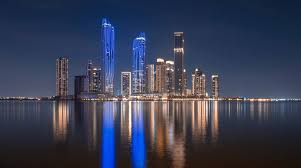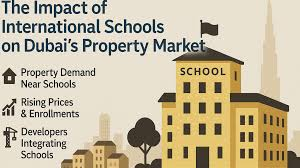Now Reading: How Emaar Is Winning Big Despite Middle East Economic Changes 2025
-
01
How Emaar Is Winning Big Despite Middle East Economic Changes 2025
How Emaar Is Winning Big Despite Middle East Economic Changes 2025

As economic conditions shift across the Middle East, one of the region’s most prominent developers, Emaar Properties, is taking bold steps to stay ahead. Known for creating Dubai’s iconic Burj Khalifa and Dubai Mall, Emaar is once again showing resilience and adaptability.
Understanding the Economic Shifts

The Middle East has been experiencing major economic changes due to global inflation, fluctuating oil prices, geopolitical tensions, and a shift towards non-oil economies. Governments in the Gulf region are focusing more on diversification, sustainability, and digital transformation.
These trends have affected investor confidence and consumer behavior. Real estate, one of the pillars of the region’s economy, has felt the impact—but strong players like Emaar are not sitting still.
Emaar’s Strategic Shift: From Luxury to Livable

For years, Emaar focused on luxury developments targeting high-net-worth individuals and foreign investors. Now, it is responding to the new economic landscape by shifting focus to affordable housing, mixed-use communities, and sustainable living.
In recent statements, Emaar has emphasized a “value-driven” approach to cater to the growing middle class and local population. Its new developments in Dubai Hills Estate, Emaar South, and Rashid Yachts & Marina show a clear move towards offering more livable, connected, and family-friendly environments.
Tech and Smart Living
Another part of Emaar’s response involves smart technology. With digital transformation becoming key in the post-pandemic economy, Emaar is investing in AI, IoT, and smart home systems.
Many of Emaar’s upcoming projects promise features like smart security, remote-controlled appliances, and energy-efficient systems. This appeals not only to younger buyers but also to tech-savvy investors looking for future-ready homes.
Expanding International Footprint

To reduce dependency on the Gulf market, Emaar is expanding globally. The company has been actively investing in Egypt, India, Turkey, and Saudi Arabia.
One of its latest and most ambitious projects is in Saudi Arabia, where the government’s Vision 2030 is opening new doors. Emaar is bidding on mega-developments like NEOM and The Red Sea Project, hoping to capitalize on Saudi Arabia’s rising real estate potential.
This strategy also helps balance risks from regional slowdowns by tapping into emerging markets with high growth potential.
Focus on Tourism and Hospitality
Another smart move by Emaar is its renewed focus on hospitality and tourism. As travel returns post-COVID, Emaar is investing in hotels, resorts, and shopping destinations.
Its hospitality arm, Emaar Hospitality Group, manages well-known brands like Address Hotels + Resorts, Vida Hotels and Resorts, and Rove Hotels. The group recently announced new properties in the UAE and other regional markets, aligning with the tourism boom and government plans to boost visitor numbers.
This diversification helps Emaar generate recurring income outside of property sales.
Sustainability and Green Living
Environmental concerns are now at the center of economic planning in the region. Emaar has stepped up by launching eco-friendly buildings, solar-powered homes, and green public spaces.
The company is working to meet ESG (Environmental, Social, and Governance) standards and aims to align with the UAE’s Net Zero 2050 strategy. New developments now include bicycle lanes, green rooftops, and energy-efficient materials, showing that Emaar is serious about long-term sustainability.
Adapting to Financing Challenges
As interest rates rise globally, financing property has become more expensive. Emaar has introduced flexible payment plans, rent-to-own schemes, and long-term financing options to ease the burden on buyers.
This makes home ownership more accessible to locals and residents who might have otherwise postponed their plans due to economic uncertainty. By easing the payment process, Emaar ensures continued demand even in tighter financial conditions.
Strong Financial Performance
Despite challenges, Emaar has reported solid financial results. In 2024, the company recorded a net profit of AED 9.2 billion, reflecting steady demand, strong sales, and efficient cost control.
Its consistent performance is boosting investor confidence, making Emaar one of the few real estate developers in the region seen as both resilient and future-ready.
Conclusion: A Blueprint for Resilience
In a region facing economic changes, Emaar is not just surviving—it’s evolving. Through smart planning, tech innovation, sustainability, and strategic expansion, the company is turning challenges into opportunities.
For investors, homeowners, and stakeholders, Emaar’s strategy is a blueprint for how to adapt in a changing economic world. Whether it’s building greener homes or going global, Emaar continues to shape the skyline—and the future—of the Middle East.
Read More:- Shobha Realty Launches Its Most Luxurious Project Yet—Full Details Inside 2025






















